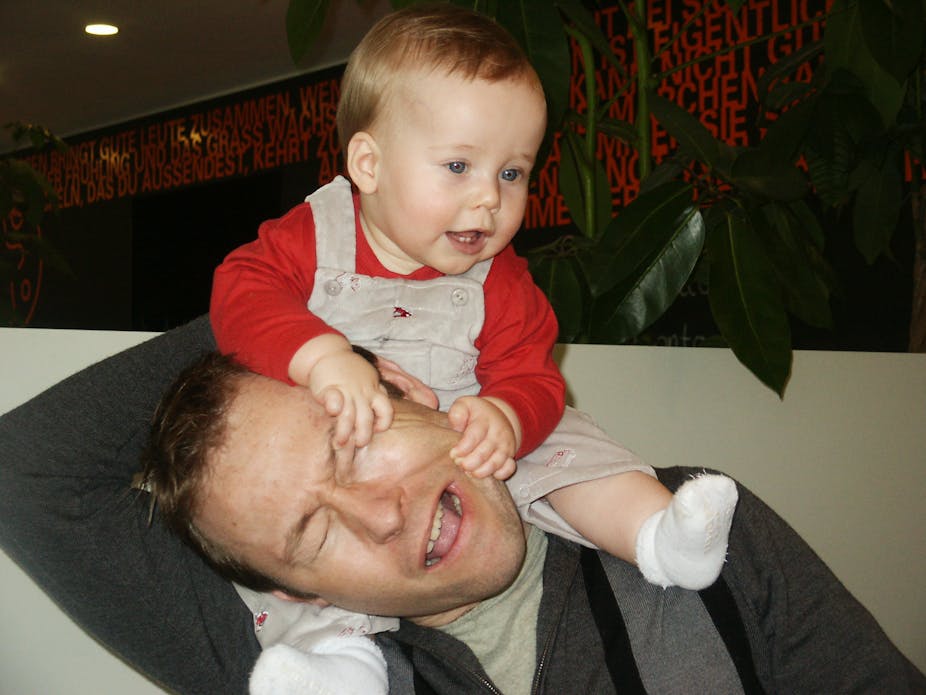Bioethicists, human rights advocates and criminal lawyers are watching another outbreak of the “circumcision wars”, after yesterday’s decision by a provincial court in Cologne, Germany, that circumcision of male infants is illegal.
The decision resulted in expressions of concern from Germany’s Muslim and Jewish communities. It will almost certainly be appealed to Germany’s highest constitutional courts (and thence, if necessary) to the European Court of Justice, on the basis of human rights.
It will revive the debate in Australia and elsewhere about the legality of non-therapeutic surgery on minors – that is, people who cannot consent to a body modification that, in practice, is irreversible and not necessary immediately after birth in order to save their life.
In essence, non-therapeutic circumcision involves a conflict in human rights law.
Opponents of infant circumcision refer to the law about assault, characterising the surgery as something that would otherwise be dealt with as a crime. They also regard it as a denial of the infant’s human rights, a body modification that is akin to the female genital mutilation, which is criminalised in Australian law.
Previous articles about circumcision on this site demonstrate that opponents are often deeply committed to those views.
Proponents, on the other hand, claim that infant circumcision is a fundamental aspect of membership of ethno-religious communities, a practice that is ordained by God (evident, for example, in Genesis 17:1-27). And that underpins the person’s psychological well-being from childhood through to the grave. Criminalisation of non-therapeutic circumcision, in that view, is inconsistent with Australia’s respect for cultural diversity and religious belief.
It’s likely that around one in ten newborn Australian males are circumcised each year, typically outside public hospitals.

Australian law regarding non-therapeutic circumcision is unclear and likely to remain so, with governments proving reluctant to grasp the hot potato. The Tasmanian Parliament has not, for example, embraced the 2009 state Law Reform Institute’s issues paper on Non-Therapeutic Male Circumcision.
Neither statute nor case law explicitly bans infant circumcision and it’s not prohibited by the leading international human rights agreements. In principle, circumcising an infant could be regarded as assault, an offence under state or territory criminal law. Assault on an infant often carries a stronger penalty than that on an adult, reflecting the minor’s vulnerability.
Assault involves intentional application of force, and opponents of circumcision argue that the cutting can be construed as the offences “wounding” or “causing grievous bodily harm”. That harm is typically identified as a bodily injury that endangers, or is likely to endanger, life or cause serious injury to health.
Much medical treatment of course involves wounding and the infliction of pain; it is lawful to engage in surgery to remedy or treat an existing disease, illness or deformity of the body.
The law also permits some injury and pain in the course of sport, such as football and boxing, and body modification such as tattooing and piercings (in the genitals, nose, tongue or ears). And it’s increasingly grappling with questions about consensual sado-masochism that ranges from spanking through to stigmatized activity, such as branding.
For many people infant circumcision is contentious purely because it is non-therapeutic and involves infants rather than because it involves pain and the excision of flesh.

An adult or teenager has autonomy in decision-making. They can consent and may well choose to modify their bodies, possibly in ways they’ll later regret (evident in the market for tattoo removal). An eight-day-old boy cannot consent. The decision has been made for the child.
Some communities consider that “belonging” requires the parents to act for the child. That action reflects a sense of the paramount interests of the child, a principle that underlies Australian family law.
From that perspective, debate about infant circumcision involves differing perspectives on what’s best for the child, for example, bodily integrity versus participation in a covenant that’s embedded in rich cultural and religious values.
There are no easy answers and it’s regrettable that much of the debate is so shrill. As a society we do allow – and even expect – parents to make decisions on behalf of their offspring. Is circumcision the right decision? Should the state intervene? Are we going to override the beliefs and values of Australia’s Muslim and Jewish communities?
One German jurist is reported as commenting, “After the knee-jerk outrage has faded away, hopefully a discussion will begin about how much religiously motivated violence against children a society is ready to tolerate.”
If we are going to have a principled discussion about “violence”, we might want to think about the violence inherent in the stigmatisation of ethno-religious groups and of gay people. The greatest harm experienced by many people is to be unloved, unwanted or marginalised rather than have to undergo surgery.

